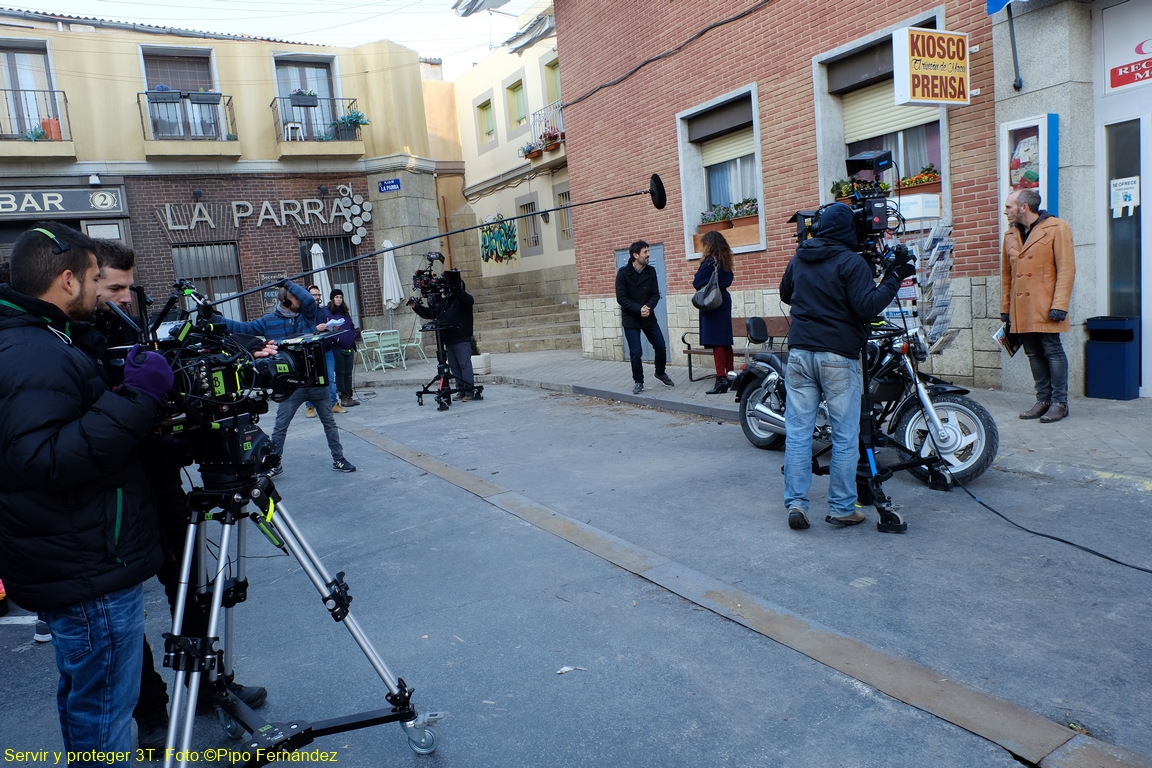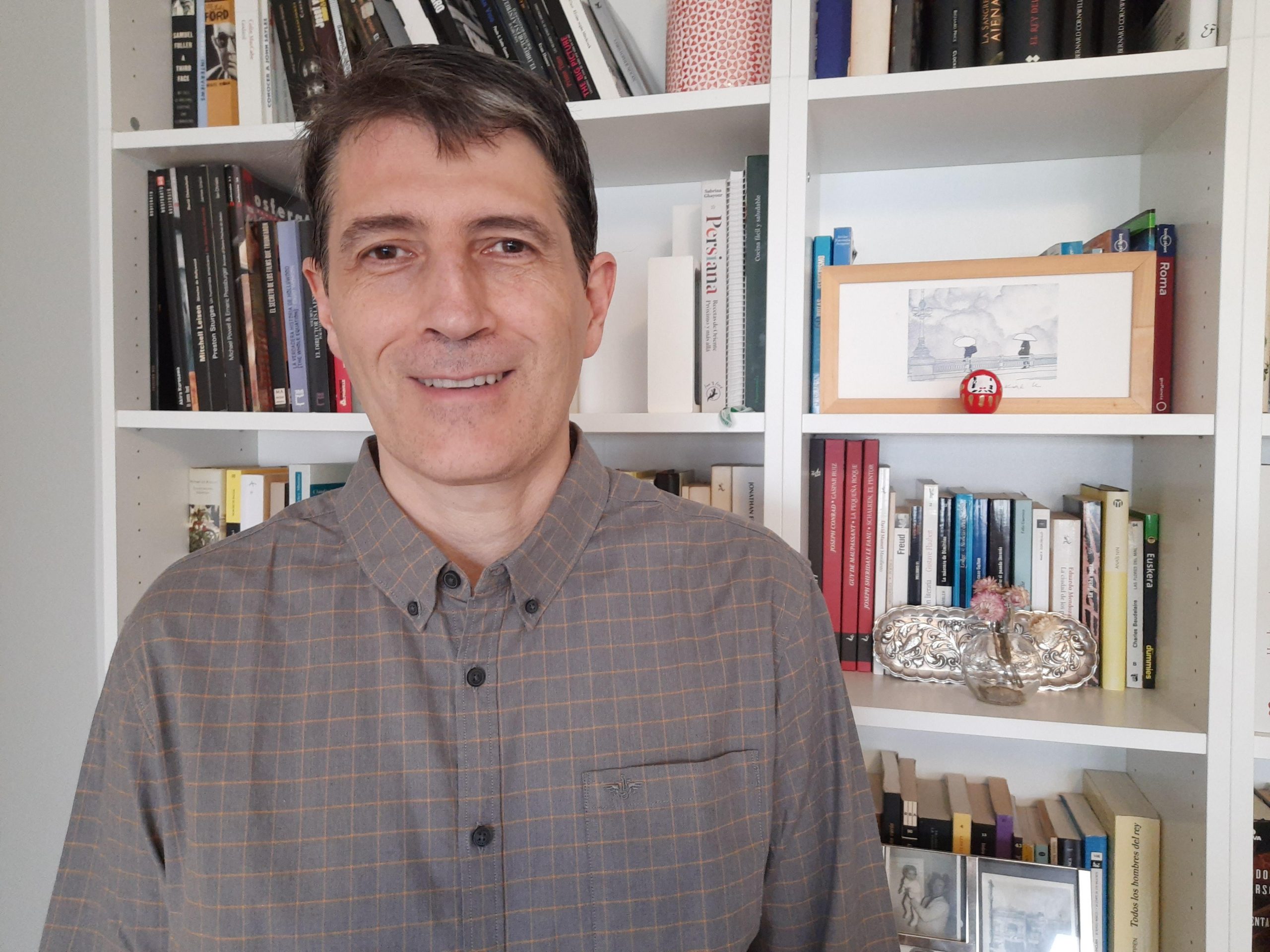INTERVIEW - HOW PLANO A PLANO'S TEAM IS
"PLANO A PLANO HAS ALWAYS GIVEN A LOT OF VALUE TO THE WORK OF SCRIPTWRITERS. WE ARE ALWAYS RECOGNIZED"
Madrid, November 19, 2020
Barely a year after graduating in Journalism, Roberto Goñi was already studying Direction and Screenwriting, a vocation that the Pamplona native has been able to amortize in a fertile career that currently rests in Plano a Plano, where he serves as coordinator of the screenplay series ‘To serve and protect’.
Q: Congratulations for the recent ALMA Award for Best Daily Series Script. In your acknowledgements you stated that “every screenwriter should have a daily strip”. Does any recognition in this category have more merit?
A: It was an exaggeration, of course. But I do believe that it is interesting for any scriptwriter to go through the challenge of writing a daily strip because of all the difficulties they have. The first is to create a story with the intention of never ending, which is already a challenge. But, in addition, this type of production has limitations that the weekly series and films do not have. In a daily series you have to be very aware of those constraints and at the same time tell interesting stories that engage the viewer. For any scriptwriter it is a challenge and a learning experience as well. On the other hand, I suppose I also said this to defend the role of the screenwriters of daily series because sometimes from the outside people do not value the merit of writing, as well as directing or producing, this type of titles.
Q: You’re also a recidivist in the genre. What do daily series contribute to making them a constant in your career?
A: Actually, it’s been a bit of a coincidence. My first job as a screenwriter was in “Yo soy Bea”, a very successful daily series for which I ended up being the coordinator. That marked the fact that I have continued to be called upon to write this type of series. Many of them coordinated by Tirso Calero who was also the one who contacted me in the beginning for SYP. The day-to-day brings you challenges as I mentioned before and professionally gives you a stability that no other project brings. If you go into a daily and stabilize on the grill you will have continuous work. Even too much, because they do not stop broadcasting except on holidays. Although I have worked mainly in daily newspapers I have also written long scripts and weekly series projects.
Q: Plano a Plano defends the fact that the creative work you do is a guarantee of the success of each production. Do you share this premise?
A: I don’t know if a good script is a guarantee, but it is certainly a necessary condition. But many other things also count: a good cast, good direction and production, not to mention marketing and many other details.
Q: From the outside one imagines the work of a scriptwriter as a solo exercise, is that right?
A: When it comes to a series, and more than one daily series in which we are many screenwriters, it is very difficult to separate individual work from collective work. The truth is that you spend almost as many hours working alone as you do collaborating with the rest of your colleagues. And I don’t just mean the writers, but also the direction and production team. In my case, being the coordinator of SYP, I have to be in permanent contact with Alexandra Graf and Emilio Perea. In the end, what can be done in the series for reasons of direction and production also influences what we can write. The nice thing is that we all want to make the best series possible and we pull together to try to tell the most exciting stories.
Q: The screenwriter dictates the plot from anonymity. Do you think this “anonymity” is a necessary condition, despite the importance of your work, or would you like the group to have more public exposure?
A: Personally, I feel comfortable in anonymity. But I know that it is important for us screenwriters to be recognized because this is the way the importance of our work will be valued. There has been a lot of progress in this field worldwide in the last few years. In our country, the work of the ALMA Union has had a lot to do with this, as it always ensures that the media publicizes the writers behind a work. In that sense I have to say that Plano a Plano has always given a lot of value to the work of scriptwriters and we are always recognized.
Q: In recent years, the figure of the showrunner has become popular in our country and there are more and more screenwriters who share this responsibility with the management. Is this evolution due to the need to protect their creation? How do you balance such a creative function with another more executive and management function such as that of producer?
A: It’s not so much the need to protect your creation, as if it were only the screenwriter’s work. It’s about having someone watching over the story. For example, if for whatever reason you have to sacrifice days of filming in any series, in the end the person responsible for the script will know better what elements can be dispensed with without harming the essence of the story. And he will also quickly find a creative solution to that problem. That’s why it’s logical that there should be this figure that borders on production. Just as it is important that he has an influence on the casting and many other aspects. I can’t tell you completely how those roles are balanced because my position is not exactly that of showrunner, although I do have an opinion on casting and other aspects. I understand that the showrunner is a more powerful figure.
Q: Confess, who is the greatest enemy of a screenwriter: a bad actor or a not very permeable producer/client (chain, etc.)?
A: I wouldn’t know. In both situations, you must know how to find a solution. If there is a very bad actor, you have to try to change it. But it’s very rare for a bad actor to make it to the cast. He may have shortcomings, but he will also have virtues and in both script and direction we will try to promote the latter. As for the client who is not very permeable, you have no choice but to try to make him sensitive to your arguments in any way. Understand what they want and from there seek an understanding.
Q: Can a drama be saved despite having a bad script thanks to other aspects such as good direction, etc., while in comedy this question would be unthinkable? Is the quality of the script therefore more vital in comedy than in drama?
A: I really think it is equally important in both cases. Although it is probably more difficult to write a good comedy.
Q: Do you think screenwriters are a collective with the weight in the industry that they deserve? Has there been an evolution in recent years in this sense?
A: We have become better known and respected. On a global level, it comes from a few years ago with the boom of series such as “The Sopranos”, “Lost” and “Breaking Bad” where it was more evident that there were screenwriters with the will to tell a story. In Spain we also have cases like this with series like “El príncipe” or later “La casa de papel”. The emergence of OTTs has been fundamental, and in our country especially because it has allowed many series to find their audience. There is the case of “La casa de papel” or “Toy Boy” and “Desaparecidos”, both by Plano. There is a constant need for content and that makes us screenwriters important. Now there are more people willing to listen to your project proposals, something that didn’t happen ten years ago.



